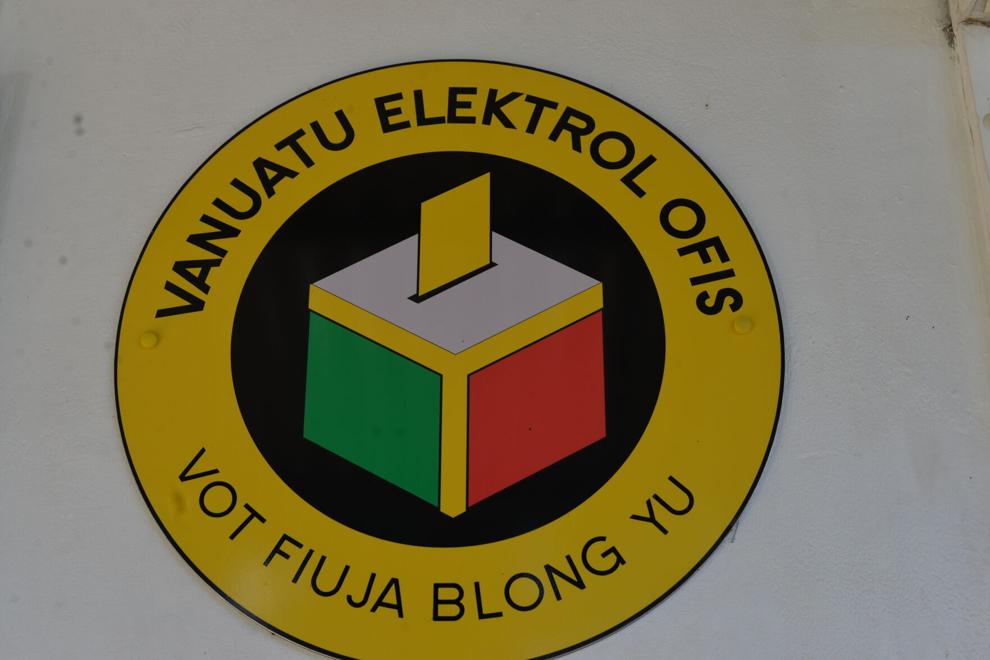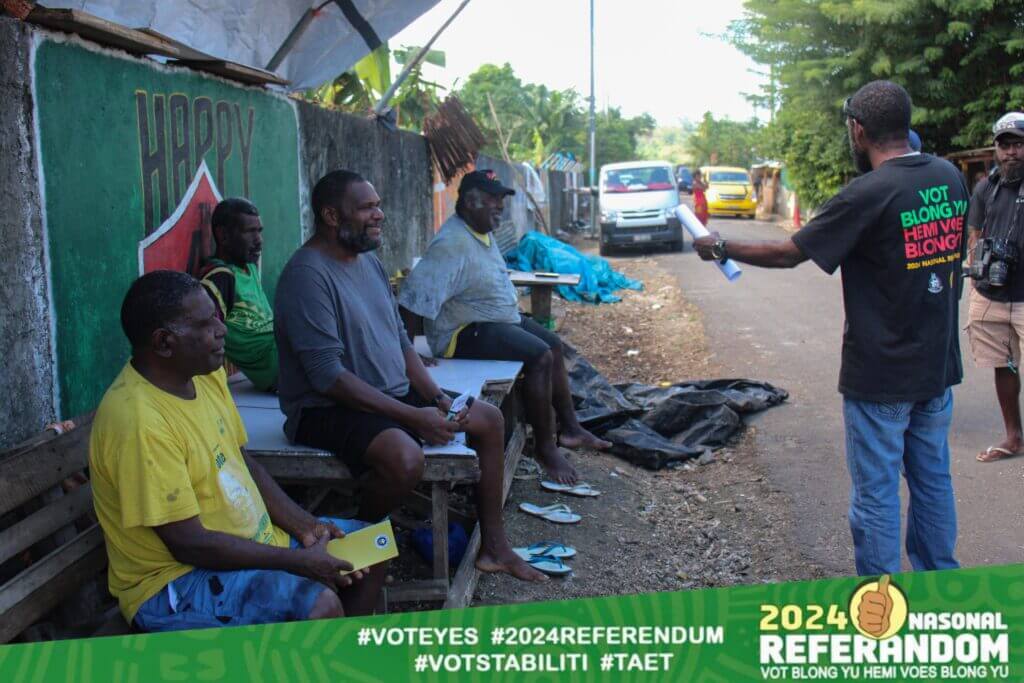By Glenda Willie.

The Referendum Act, CAP 297 of 2006, has never been implemented since its development.
In 2023, Parliament introduced proposed amendments to the Constitution, including Article 17 and the insertion of Articles 17A and 17B, requiring a national referendum as per Article 86 of the Constitution. According to the article 86 of the Constitution, a national referendum is required if a constitutional amendment is passed by the Parliament on the status of Bislama, English and French, the electoral system, or the parliamentary system.
According to the Chairman of the Electoral Commission, Edward Kaltamat, the electoral system is affected in this case.
However, the existing Referendum Act lacks specific regulations to guide the conduct of such a vote. Therefore, the Vanuatu Electoral Office (VEO), along with the Electoral Commission and the Office of the Attorney General (OAG) has collaborated to draft a Regulation Order.
The Regulation Order, still in its draft stage, addresses various important aspects of the referendum process, the Chairman explained. These include voter registration procedures, the duration of the campaign period, vote counting procedures, result verification, and declaration protocols.
Additionally, the Regulation Order outlines the criteria and eligibility for referendum observers and establishes the process for counting votes based on a simple majority.
Chairman Kaltamat elaborated on another significant aspect covered by the Regulation Order: the handling of void votes. In the case of regular elections, torn ballot papers with candidate photos are considered void. However, for the referendum, only two ballot papers will be used: green for “yes” votes and red for “no” votes. The Regulation Order specifies guidelines for validating and voiding such votes.
There are also provisions made in exceptional cases for individuals unable to vote at their designated polling station on referendum polling day. Chairman Kaltamat illustrated this with an example of someone from Tanna unable to return due to accompanying a sick relative to Vila.
In such cases, the Regulation Order allows these individuals to vote elsewhere in Port Vila, ensuring their voting rights are upheld. He explained that this particular person from Tanna must be a registered voter and electoral officers would be able to confirm this information by scanning his ID card.
However, these exceptional provisions will only apply in rare circumstances to prevent eligible citizens from being deprived of their voting rights.
As the Regulation Order undergoes final drafting by the OAG, the Electoral Commission awaits its official approval to guide the referendum process effectively.


